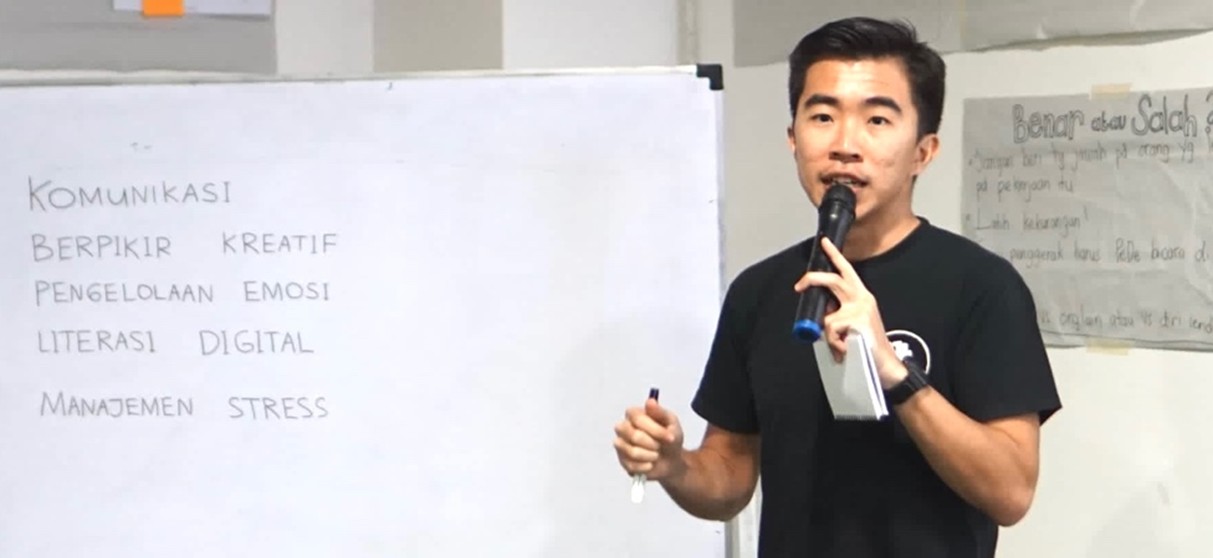
So far, the topic of discussion in this column has been mainly business. Also, the discussion about reputation is related to company activities. This time it’s a bit different, I will discuss reputation in politics. The world is currently being enlivened by political activities, as well as Indonesia is now busy with Regional Head Election (Pilkada) in 270 regions, which are full of chaos amid the pandemic. Before discussing the Pilkada in our country, I will first turn to a foreign country, namely the United States.
In 2006 in the United States there was a politician named George Allen. He was smart, handsome, tall, athletic, and very popular. After previously serving as a member of the Virginia state legislature, in 1994 he won the election for the post of governor of the state. In 2001 he was elected to represent Virginia in the United States Senate, a very strategic and prestigious position. George Allen has even been predicted as a candidate for president of the Republican Party.
Racist Speech
Amid the brilliance of his political star, disaster struck George Allen in 2006. At one of the campaign events for his re-election as Senator, attended an Indian descent, S.R. Sidarth who was a member of the Democratic Party’s campaign team, George Allen’s opponent. George immediately said loudly, “This fellow here over here with the yellow shirt, Macaca, or whatever his name is. He’s with my opponent… Let’s give a welcome to Macaca, here. Welcome to America and the real world of Virginia.” For the record, Macaca can be interpreted as a monkey (monkey or macaque, is a medium-sized, chiefly forest-dwelling monkey which has a long face and cheek pouches for holding food).
This up-and-coming politician’s remarks immediately came under heavy criticism across the United States as inappropriate racist remarks. Keep in mind that this incident took place in the mid-2000s which could not accept such remarks in public. Since Donald Trump became president, it seems that insults and harsh and racist remarks have become a part of everyday political behavior in the country, so it seems that they are not causing upheaval anymore.
Back to George Allen, all his efforts to overcome the crisis were futile. His party also abandoned him, some even pointing out that in high school he glorified the Confederate flag (Southern states that maintained slavery and rebelled against the central government in the 19th Century in the United States Civil War).
Others remembered that as a member of the Virginia legislature, George Allen opposed the warning of a leader in the struggle for equal rights for black citizens, Martin Luther King Jr. as a national holiday. In short, his brilliant political career and hopes of someday becoming President of the United States were dashed. After his tenure as Senator, he left politics altogether.
Currently in Indonesia, Pilkada is taking place in various regions. Many of those running for election as regional heads or members of the legislature are newcomers who have not yet been recognized in the political arena. The challenge here is the opposite of that of George Allen. Never mind the reputation, the political track records of many of those who ran in the Pilkada are still plain. They must make every effort to be able to attract the attention of voters in their respective regions to win the competition with other candidates.
In the world of Indonesian politics, the term “kader jenggot” — or “beard cadres” — is known, namely people who want to reach a position on the political stage by relying on “support from above” or hanging upward like a beard, both leaders at the national or regional level as well as officials from related parties.
This is in contrast to the grassroots candidate. For those who do not have a track record, of course, if they are lucky to become a beard cadre, there will be opportunities to be nominated. The hope is that after being elected they can build a solid track record to be re-elected in the next period because it is impossible to depend on the blessing or protection from above forever.
“Strategic Management”
This beard cadres phenomenon can be explained by the theory of Strategic Management, a subject that must be mastered to achieve an MBA. There are two major streams in Strategic Management, namely the industrial organization (IO) approach which views strategic management from a broad perspective, namely the industrial structure as an external environment that must be dealt with in order to win the competition. The most famous character in this stream is Michael Porter.
The other major stream is the Resource-Based View (RBV) which relies on resources within ourselves as the main capital to win the competition. The names that are well-known for adherents to the RBV school are Gary Hamel and C.K. Prahalad. Resources can be owned alone or borrowed from other parties, for example by including well-known personalities in the company in order to compete against other companies.
Referring to the Strategic Management theory, beard cadres who do not yet have their own resources are forced to borrow resources from other parties who have the authority or power as an asset to win the competition. Regional expansion creates new constituencies. In addition, free political life in Indonesia only developed with the fall of the New Order two decades ago. Given these two facts, the beard cadres phenomenon can be predicted to continue in the future.
Noke Kiroyan
Chairman & Chief Consultant, Kiroyan Partners
This article has been published in PR Indonesia magazine 67th Edition, issued on October 2020, pages 56-57.
Download the clipping here.



